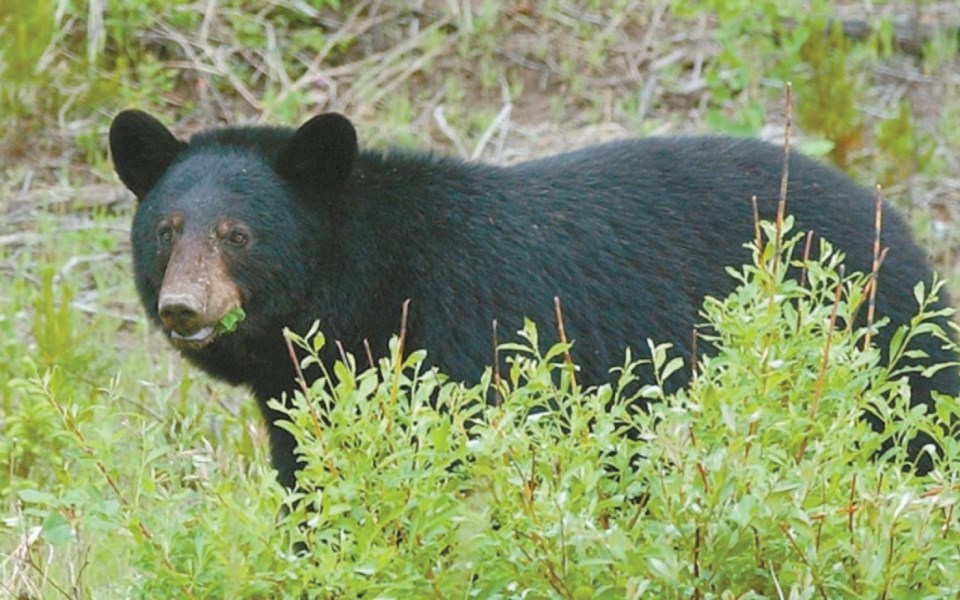VANCOUVER — The BC Conservation Officer Service is reminding residents to brush up on bear safety after had a spike in conflict calls this spring.
Deputy chief Chris Doyle says the service received 3,826 calls about black bears and 182 about grizzlies in April and May.
That's more than 60 per cent higher than the average number of bear calls for the same period over the past eight years.
Doyle says "conflicts" can range from bear attacks to sightings in developed areas, with everything from charging, habitual garbage eating and livestock attacks in between.
He reminds residents that it's illegal to feed bears or negligently store attractants like garbage and he points to the Wildsafe BC website as a resource for more information.
The cause of the spike is unknown, but Doyle says climate and weather conditions may have meant less food for bears coming out of hibernation.
"It's possible the cold, dry spring has led to a poor availability of new growth for bears to eat as they emerge from the den," Doyle says.
Bears are coming in contact with humans all over the province but Doyle says "hot spots" include the Sea-to-Sky region and Metro Vancouver.
He says they have two active investigations on the Sunshine Coast, where residents are suspected of feeding the bears.
"Although the bears may not look healthy, providing food to them is definitely not helpful," Doyle says.
"It could put yourself, as well as your neighbours and the bear, at risk."
Doyle also warned of a rise in deer conflict in the Okanagan.
He says it's fawning season, so people need to avoid coming between a doe and her fawn and keep dogs on leashes.
If you see a fawn alone, it's likely not abandoned so don't attempt a "rescue," he says.
In Prince George, conservation officers have received 204 complaints about black bears and eight about grizzlies so far this spring. Moreover, a dozen black bears have been put down and 95 per cent of the scat of the bear that was most-recently put down consisted of garbage, says Conservation Officer Service Sgt. Steve Ackles.
"I'm getting really frustrated with people and their garbage," Ackles adds. "You can't tell me they just don't know to put it into a bear-resistant container or a shed or a garage."
The same goes with people who fail to take down bird feeders once the winter is over - turning them into another draw for bears looking for easy food.
He says only bears that are habituated to garbage will try to break into a shed. Habituated bears cannot be relocated, he also says.
Ackles encourages people to call in bear sightings to 1-877-952-7277.
"We're seeing it on Facebook," he says. "People are saying don't call the COs, they're just running out to shoot those bears. Well, that's the last thing we want to do."
- with files from Mark Nielsen, Citizen



